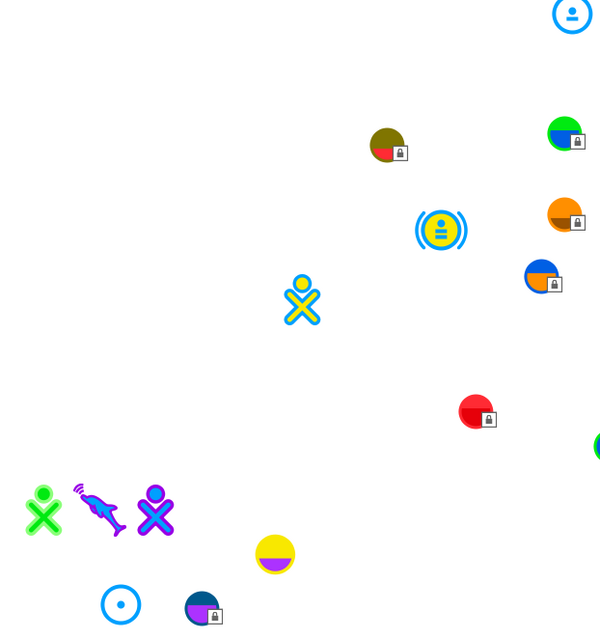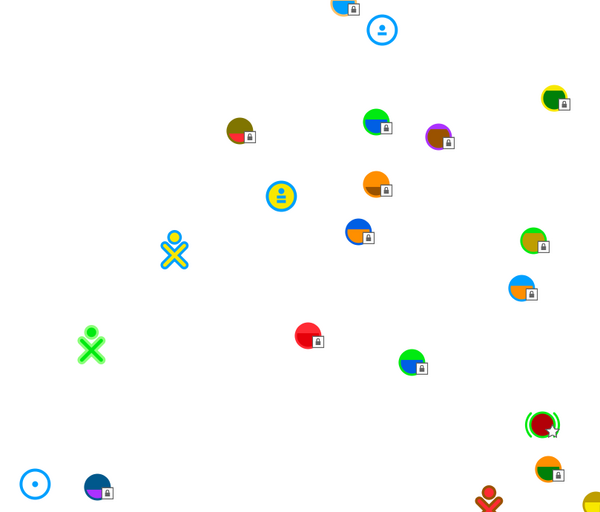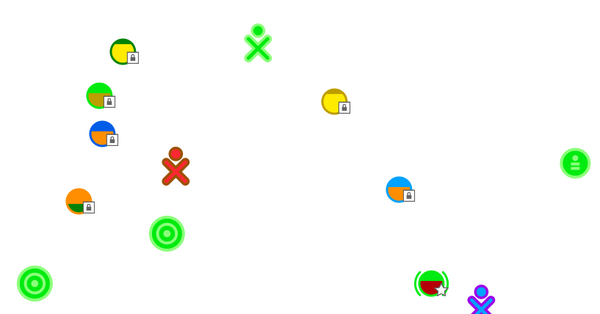Features/Ad hoc Networking/Testing: Difference between revisions
No edit summary |
No edit summary |
||
| (3 intermediate revisions by 2 users not shown) | |||
| Line 5: | Line 5: | ||
---> ''the machine does autoconnect with the AP'' | ---> ''the machine does autoconnect with the AP'' | ||
* start the machine without having connected to an AP before | * start the machine without having connected to an AP before | ||
---> ''the machine should autoconnect to | ---> ''the machine should autoconnect to ad hoc network 1'' | ||
* start machine A and connect to the | * start machine A and connect to the ad hoc network 6, start machine B without having been connected to an AP before | ||
---> ''machine B should autoconnect to the | ---> ''machine B should autoconnect to the ad hoc network 6'' | ||
=== Connect both machines to the same channel === | === Connect both machines to the same channel === | ||
| Line 14: | Line 14: | ||
=== Share an activity === | === Share an activity === | ||
---> ''the shared activity is displayed correctly in the | ---> ''the shared activity is displayed correctly in the Neighborhod view and the sharing does work'' | ||
=== | === Members === | ||
[[File:Adhoc network Indicate population.png|thumb|none|600px| The | [[File:Adhoc network Indicate population.png|thumb|none|600px| The ad hoc icons in the Neighborhood view do indicate whether the network has members or not, here channel 11 has members.]] | ||
The | The ad hoc icons in the Neighborhood view do indicate whether the network has members or not, whether it is used by more than one person. It does not indicate the number of people that are connected though. If the fill color of the ad hoc icon is set then there is at least one person listening. | ||
* On machine A connect to an | * On machine A connect to an ad hoc network. Start machine B which has been connected to an access point before. | ||
---> ''On machine B it should automatically connect to the access point and the icon representing the | ---> ''On machine B it should automatically connect to the access point and the icon representing the ad hoc network machine A is connected to should be colored, the fill color is set.'' | ||
* Shut down machine A. | * Shut down machine A. | ||
---> ''after 10-15 minutes the icon representing the | ---> ''after 10-15 minutes the icon representing the ad hoc network machine A is connected to should be uncolored, the fill color is NOT set. This is indicates that there are no members on the network.'' | ||
=== Collaborate between XO-1.0 and XO-1.5 without infrastructure === | === Collaborate between XO-1.0 and XO-1.5 without infrastructure === | ||
[[File:Adhoc network XO-1.png|thumb|none|600px| The XO-1.5 and XO-1.0 will see | [[File:Adhoc network XO-1.png|thumb|none|600px| The XO-1.5 and XO-1.0 will see ad hoc networks in his neighborhood view, so it the XO-1.0 can connect to an ad hoc network that has been created by a learner on the XO-1.5.]] | ||
The XO-1.5 and XO-1.0 will see | The XO-1.5 and XO-1.0 will see ad hoc networks in his Neighborhood view, so it the XO-1.0 can connect to an ad hoc network that has been created by a learner on the XO-1.5. | ||
Latest revision as of 10:39, 4 October 2010
Flash at least two XOs with the latest version of Sugar and the latest version of NetworkManager.
Autoconnect
- connect to an Access Point on one machine and restart the machine
---> the machine does autoconnect with the AP
- start the machine without having connected to an AP before
---> the machine should autoconnect to ad hoc network 1
- start machine A and connect to the ad hoc network 6, start machine B without having been connected to an AP before
---> machine B should autoconnect to the ad hoc network 6
Connect both machines to the same channel
---> the buddies should be present on the neighborhood view of the other machine

---> the shared activity is displayed correctly in the Neighborhod view and the sharing does work
Members

The ad hoc icons in the Neighborhood view do indicate whether the network has members or not, whether it is used by more than one person. It does not indicate the number of people that are connected though. If the fill color of the ad hoc icon is set then there is at least one person listening.
- On machine A connect to an ad hoc network. Start machine B which has been connected to an access point before.
---> On machine B it should automatically connect to the access point and the icon representing the ad hoc network machine A is connected to should be colored, the fill color is set.
- Shut down machine A.
---> after 10-15 minutes the icon representing the ad hoc network machine A is connected to should be uncolored, the fill color is NOT set. This is indicates that there are no members on the network.
Collaborate between XO-1.0 and XO-1.5 without infrastructure

The XO-1.5 and XO-1.0 will see ad hoc networks in his Neighborhood view, so it the XO-1.0 can connect to an ad hoc network that has been created by a learner on the XO-1.5.